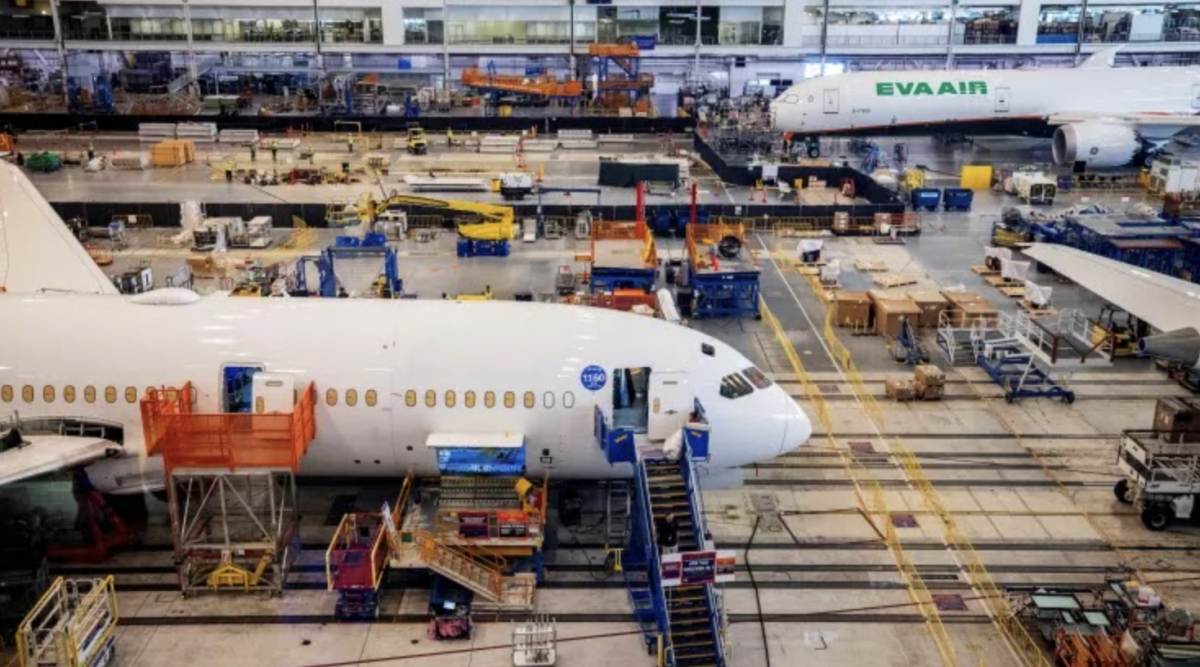On Jan. 5, a Boeing 737 Max 9 passenger jet lost a rear door plug mid-flight, starting off the new year with aggressive turbulence and terrified customers. The large door plug plummeted into the backyard of a high school science teacher in Portland, Oregon. The Federal Aviation Administration (FAA) ordered the grounding of similar Boeing airliners for weeks.
“This incident should have never happened and it cannot happen again,” the FAA said at the time. According to NPR, in the months after the incident, Boeing’s reputation plummeted, though there had been similar incidents in 2018 and 2019 “tarnishing their reputation.”
“It will affect Boeing’s long-term reputation and cause people to be more cautious when boarding their jets, said senior Ryan Elchahal. “It seems like there is a lack of organization and management, or maybe it’s even intentional, meaning that the company wants to take shortcuts to cut costs at the expense of their customers. I hope that there is a high amount of quality control within these companies since there is an especially high safety risk should an airplane fail.” .
The aftermath of the door plug incident quickly affected airlines that bought dozens of new 737 Max 9 airliners only to see them grounded by the FAA. The airlines went on to face much skepticism from customers once the aircraft was cleared for flights. Though commercial air travel has maintained high safety protocols, Boeing now faces renewed concern over its ability to meet quality and safety standards. Many of these concerns have stemmed from Boeing’s close relationship with the U.S. government in helping Boeing sell planes on an international scale.
“After learning about the recent drawbacks and issues with the Boeing airplanes, I no longer feel as safe going on transatlantic or even domestic flights,” said junior Zainab Barodawala.
A timeline of Boeing’s deficiencies includes:
Jan. 5: Door plug failure cuts Alaska Airlines flight short. There were a total of 171 passengers and six crew members on board. Though no serious injuries were reported, the passengers were shaken up. The flight lasted a total of 20 minutes.
Jan. 8: Airlines find more loose parts, while a lawsuit alleges “excessive amount of defects” at a key Boeing supplier. Alaska Airlines and United Airlines, both of which fly Boeing jets with the door-plug configuration, say they “found loose parts on their grounded 737 Max 9 jets” (NPR).
Jan. 12: The FAA claims that they will inspect Boeing production. The FAA says the grounded Boeing 737 Max 9 jets can be put back into service once they have undergone “a thorough inspection and maintenance process.”
Jan. 24: The FAA clears a path for 737 Max 9 planes to resume flying as normal. Three weeks later, Alaska Airlines puts the first of its Boeing 737 Max 9 jets back into service. Some customers express their reluctance to fly on the aircraft because of previous incidents.
Feb. 21: Boeing executive Ed Clark, who oversaw Boeing’s 737 Max program, leaves the company following the negative press and is replaced by Katie Ringgold.
Following the recent deficiencies, an engineer at Boeing alleged the aircraft company is taking manufacturing shortcuts which could potentially lead to jetliners breaking down. The former Boeing employee who had been giving evidence in a whistleblower lawsuit against the company was found dead in South Carolina. The death of John Barnett, 62, was confirmed by the Charleston County coroner. The office said in a news release that he died from “what appears to be a self-inflicted gunshot wound.”
Barnett worked at Boeing for 32 years and retired in 2017, the BBC reported. From 2010 to 2017, he worked as a quality manager at the airplane manufacturer’s North Charleston plant. The plant manufactured the 787 Dreamliner, which was the subject of multiple whistleblower complaints. Barnett told the BBC in 2019 that he had uncovered serious problems with oxygen systems on the long-haul jet. Boeing denied the accusations and was adamant in stating that the defective systems were never installed.
Moreover, Barnett also alleged that sub-standard parts that were set to be discarded were fitted to planes to avoid production delays, the BBC reported. He claimed that the rushed process and use of unsafe materials would jeopardize customers’ safety. Barnett claimed that he had alerted higher authority, but no immediate action was taken. A panel of experts recently criticized Boeing’s safety culture, telling the FAA that there was a “disconnect” between Boeing’s senior management and workers.
A 2017 review by the FAA did find the location of at least 53 unsafe parts in the North Charleston factory, mirroring one of Barnett’s allegations, and ordered the airline to take immediate action. Barnett was in Charleston to give a formal deposition relating to a defamation lawsuit he had filed against Boeing. He was expected to appear for further questioning but failed to appear and was found dead in his truck in the hotel’s parking lot.
The airline industry is facing numerous issues regarding safety standards and building protocol. While Boeing faces some scrutiny, the airline industry as a whole attempts to maintain high safety standards and meticulous practices.
Edited by Andrew Su





